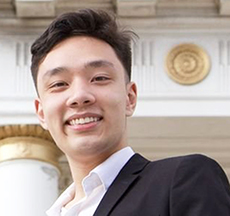Negotiations update
Covid MOU settled for Spring semester; Negotiations continue on compensation
by Marianne Kaletzky, AFT 1493 Executive Secretary
Just before Christmas, AFT 1493 and the District settled an MOU for Spring 2021 that includes provisions for up to 12 weeks of family leave. Given our difficulties getting the District to the negotiating table, many members were concerned the MOU would not be settled until after the holiday—a possibility that caused particular anxiety for faculty parents waiting to see whether they could take leave to care for children who are at home due to the pandemic. Many of these faculty parents organized to speak out at SMCCD Board meetings: they shared the struggle of wanting to give their all to students who now face unprecedented challenges while also providing attention and support to their children at home. With their testimonies, we were able to get the District to guarantee Covid-related family leave through Spring—even as FFCRA, the Federal program that formerly guaranteed leaves, has expired. For more on available leaves, see our Negotiations Updates.
The Spring MOU contains new provisions to give:
- an automatic monthly stipend to all faculty teaching online to defray expenses related to working from home, with full-timers receiving $100 per month and part-timers receiving a pro-rated amount (faculty should see this stipend beginning in their January paychecks);
- compensation for distance education trainings other than QOTL that a faculty member takes, provided their dean has agreed that the training is appropriate, applicable, and necessary; and
- a guarantee that not teaching in Spring 2021—regardless of the reason—will not affect a part-timer’s position on their division’s seniority list.
The Spring MOU also extends many of the Summer-Fall Covid provisions our survey of members showed were working well, including
- a limit of two high-volume or high-demand service duties for full-timers;
- a reduction of counselors’ appointment time to 21 hours per week to allow 4 additional hours of “prof time”;
- extra compensation for large classes beginning at 46 students on Census Day or 41 students on the last day to withdraw; and
- 6 hours of pay at the special rate to convert courses that haven’t previously been converted for remote teaching.
Difficulties getting the District to negotiate on final issue: Compensation
AFT and the District continue to work towards a multi-year contract to replace the one that expired in the summer of 2019. We have come to agreement on a number of issues, including a system to quantify full-time faculty workload and new protections for members subject to discipline. We now have only one issue left to settle: compensation, including part-time parity. However, since negotiations returned to compensation, we’ve found it extremely difficult to get District negotiators to the bargaining table. In the past three months, the District’s negotiating team has only met with us twice: once on December 8th, and once on January 8th. They did not even schedule any bargaining dates in November and canceled many other meetings they had already scheduled. AFT members have attended Board of Trustees meetings and Chancellor Claire’s office hours to speak about the need for regular negotiations sessions. Our next meeting with District negotiators is scheduled for February 4th, and we are working to keep up the pressure on the District to schedule consistent, timely bargaining sessions.
AFT continues to advocate for part-time equity and fair compensation for all
When we have been able to meet with District negotiators, they have offered little movement on part-time parity. The District has refused our proposals to pay part-time instructors by load (rather than by the hour) and to move part-timers to a mirror schedule that includes all the steps and columns full-timers have. Instead, they have insisted on keeping a system that forces part-timers to do prep and grading for free, refuses part-timers any compensation for their education, and offers part-timers only 11 steps—so that many part-timers “max out” on steps with decades left in their careers. In lieu of a fair salary schedule, the District has offered a one-time payment to part-timers equivalent to 2% of their current pay. This one-time payment offers no help to part-timers in the long run; even in the short term, it does very little to make SMCCD part-time pay competitive with part-time salaries at peer institutions, including West Valley-Mission, Foothill-DeAnza, and City College of San Francisco. In all these peer districts, a part-timer at Step 5, with an MA + 15 units, earns at least $770 more to teach a single 3-unit course than the same part-timer does at SMCCD. See the Comparison of Part-Time Faculty Compensation for SMCCCD and Bay 10 Districts
AFT is committed to securing fair compensation, including increased benefits, for all faculty. We are continuing to demand that the District establish a mirror schedule for part-time instructors and commit to a timetable of concrete actions to get part-timers to 85% parity in two years. We are also demanding salary increases for full-timers that reflect SMCCD’s healthy financial status and current budget outlook in a county where total property tax revenue has continued to increase during Covid.


